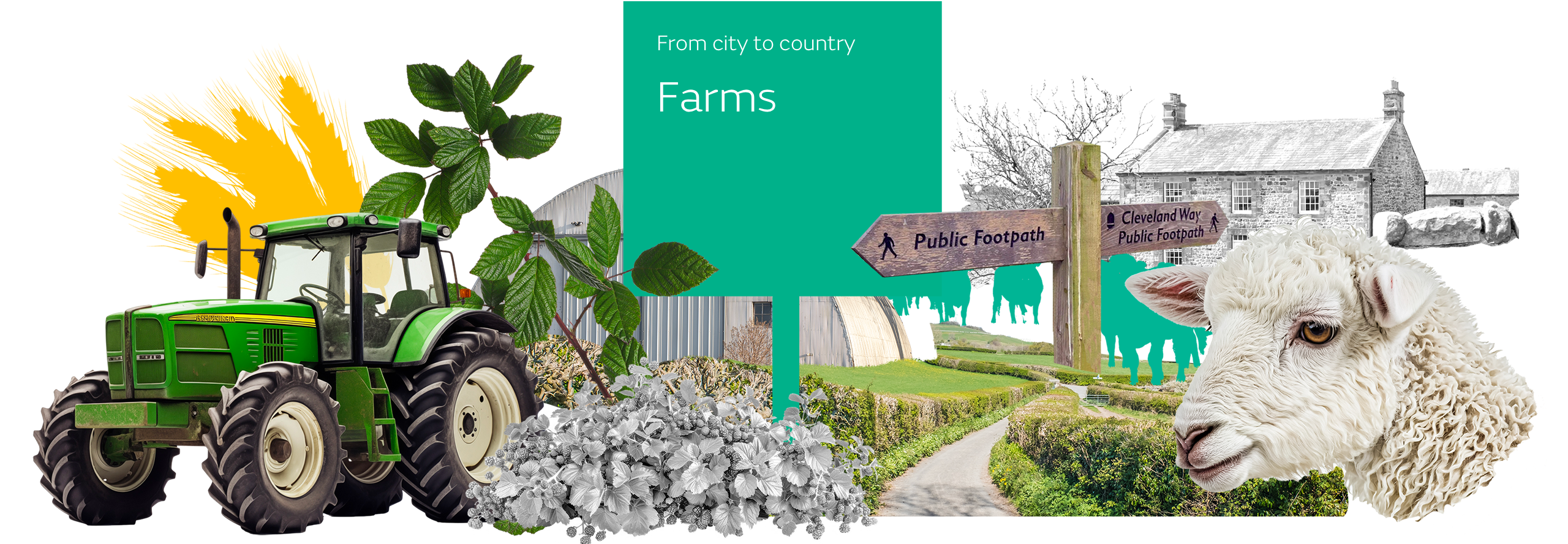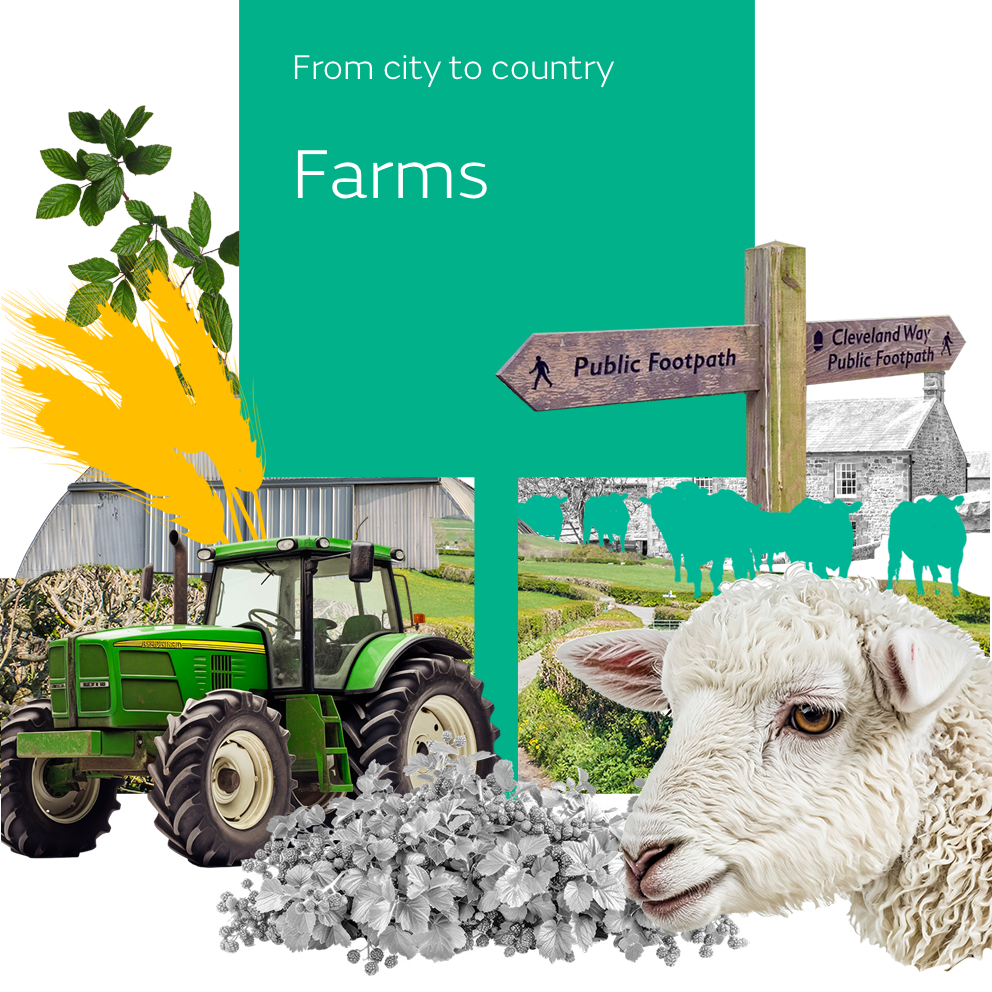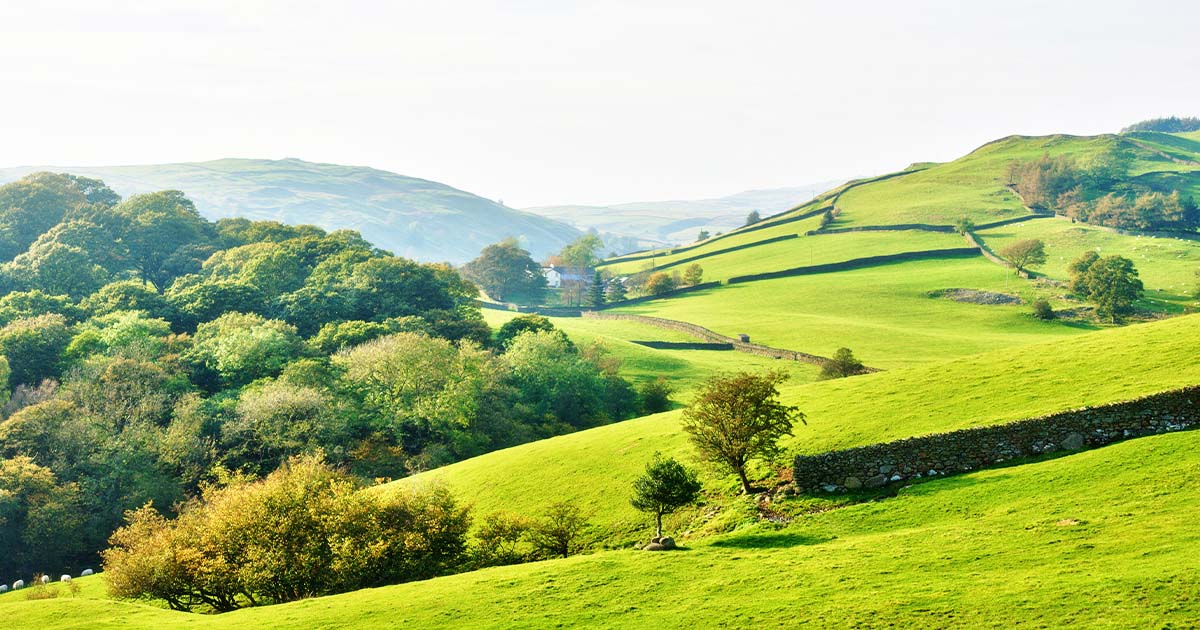

Farms
A true escape to the country may be found somewhere amongst the rolling meadows and patchwork quilt of countryside farms. Waking up to the sight of sheep happily chewing the cud or birds nesting in the hedgerows as the sun rises will certainly bring a whole new way of life and with that lots quirks.
Thinking of purchasing a farm?
Here are the quirks to be aware of:
Protected scheduled monuments
Farms regularly have the quirks of containing unusual physical features including ha-ha’s and protected scheduled monuments such as burial mounds, dovecotes and even some areas that are not always visible above ground. These structures are protected by Historic England, which means that it is imperative before any works are carried out, written permission is obtained from the Secretary of State for Culture, Media and Sport as it is a criminal offence to demolish, destroy, damage, remove, repair, alter or add to a Scheduled Monument.
Sources of pollutants
Owning a Farm comes with a multitude of responsibilities. From large oil tanks to silage storage, to the historic propensity for the use of asbestos in barns, there are a number of potential sources of pollutants that need to be safely managed on agricultural land. Assuring oneself that you are not inheriting any environmental problems from a previous owner is also something that should be checked.
Protected hedgerows
When purchasing a Farm you should be aware if there are any protected hedgerows. Hedgerows are a boundary line of bushes which can include trees and are protected if they meet certain criteria relating to length, location (e.g. on or next to land used for agriculture), and importance (e.g. contains a scheduled monument or contains species that are protected or endangered). If you wish to remove or carry out works to a protected hedgerow you must speak with your local planning authority as there are various restrictions in place prohibiting removal or works being carried out and if you break the rules you could face an unlimited fine.
Opportunities for managing the land
Unless you intend to farm the land yourself, there are different opportunities for how you manage the agricultural and farming aspects which may include letting the land out on a licence to a local grazier so they can graze their sheep or cattle or entering into a farm business tenancy. There are lots of wonderful opportunities for farmland and it may be sensible to also take advice from a local land agent.
Public rights of way
Public rights of way can be an issue – enquiries should always be raised of the seller and the local authority to determine the existence of any public rights of way or any pending applications to create new rights of way.
Lack of mains drainage
Many rural properties do not benefit from mains drainage. Where this is the case, it will be important to check where the drains run, where the septic tanks or sewage treatment plant is located, what type of system it is and when it was installed and whether it is compliant with the General Binding Rules 2023. If pipes and/or systems are located on third party land, it will also be necessary to check that the correct easements are in place for the use and maintenance of the drainage facilities. Any contamination caused by effluent from drainage systems can be subject to extensive remediation costs and fines.
Download our full report to learn more or contact our team today to help you navigate your own home buying journey.
Download the report Contact usOur team

Poornima Andrews
Senior Associate, Residential Property

Lucy Barber
Partner, Head of Residential Property

Robert Barham
Partner, Residential Property

Ben Barrison
Partner, Head of Real Estate Disputes

Jayne Beardmore
Senior Associate, Rural Land and Business

Henry Cecil
Partner, Head of Rural Land and Business

Lanna Chen
Senior Associate, Residential Property

Victoria Du Croz
Partner, Head of Planning

Penny Elliott
Consultant, Rural Land and Business

Christopher Findley
Consultant, Rural Land and Business

Justin Fuller
Property Lawyer, Rural Land and Business

Georgina Haddon
Senior Associate, Residential Property

Tracy Hon
Senior Associate, Residential Property

Freddie Hunter
Senior Associate, Residential Property

Anna Jassani
Senior Associate, Residential Property

Selina Karki
Paralegal, Rural Land and Business

Tatiana Kinsky
Associate, Rural Land and Business

Bryan Lai
Paralegal, Residential Property

Andrew Lane
Partner, Rural Land and Business

Lizzie Letley
Associate, Rural Land and Business

Shelley Lloyd
Associate, Residential Property

Helen Marsh
Partner, Residential Property

Anna Maude
Paralegal, Residential Property

Charles Miéville
Partner, Residential Property

Polly Montoneri
Partner, Rural Land and Business

Andrew Parker
Partner, Head of Construction Disputes

Bhavleen Puri
Paralegal, Residential Property

Lily Robertson
Chartered Legal Executive, Residential Property

Charlotte Ross
Senior Knowledge Development Lawyer, Real Estate and Construction Disputes

Victoria Salter-Galbraith
Counsel, Rural Land and Business

Gethen Sasanow
Senior Associate, Residential Property

Adam Saunby
Senior Associate, Rural Land and Business

Jessica Scarlett
Senior Associate, Residential Property

Ruth Thi
Paralegal, Residential Property

Cecelia Thornhill
Paralegal, Residential Property

Will Tidy
Associate, Rural Land and Business

Samantha Tomczyk
Senior Associate, Residential Property

Harvey Tomes
Associate, Rural Land and Business

Adam Whitfield-Jones
Senior Associate, Residential Property

Caroline Wild
Counsel, Real Estate Disputes

Jayne Woodland
Licensed Conveyancer, Rural Land and Business


